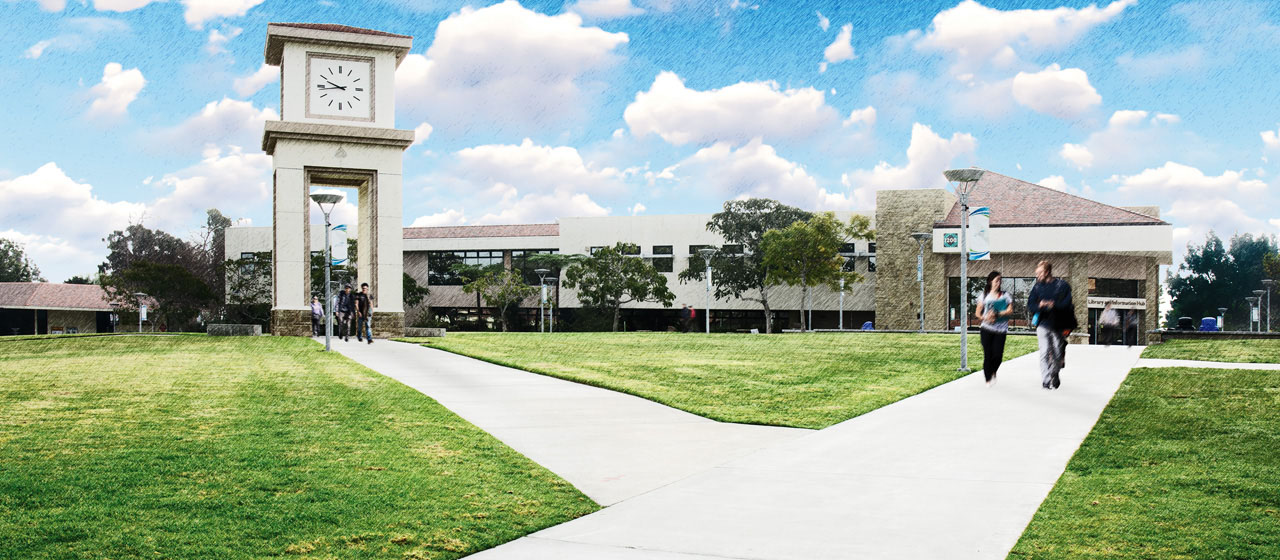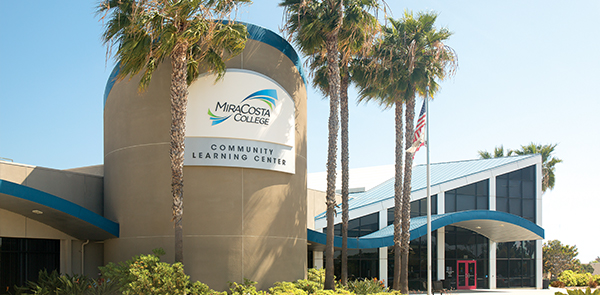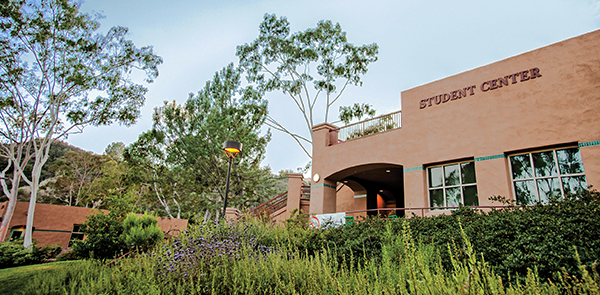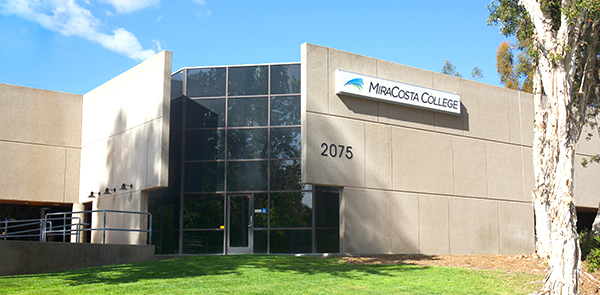 Search
MiraCosta
Search
MiraCosta

Psychology
Psychology
How to Read Course Descriptions
For more detailed information about a course, such as its content, objectives, and fulfillment of a degree, certificate, or general education requirement, please see the official course outline of record, available on the Courses and Programs webpage at https://www.miracosta.edu/governance/courses-and-programs-committee/curriculum-management-system.html.
Courses
PSYC 100: Psychology of Personal Growth
Units: 3
Prerequisites: None
Acceptable for Credit: CSU, UC
Lecture 3 hours.
Course Typically Offered: Fall, Spring, and Summer
This course introduces the principles of human behavior with a combined emphasis on the scientific method, personal growth, and the application of psychology to everyday life. Topics include adjustment, personality, friendship and intimate relationships, human sexuality, the self, psychological disorders and psychotherapy, and health psychology. The course emphasizes the scientific basis of psychological knowledge and the application of such knowledge to achieve personal growth. UC CREDIT LIMITATION: No credit if taken after PSYC 101 or PSYC 101H. C-ID PSY-115.
PSYC 101: General Psychology
Units: 3
Prerequisites: None
Enrollment Limitation: Not open to students with prior credit in PSYC 101H.
Acceptable for Credit: CSU, UC
Lecture 3 hours.
Course Typically Offered: Fall, Spring, and Summer
This introductory course focuses on the major theories, concepts, methods, and research findings in psychology. Topics include the biological basis of behavior, perception, cognition, consciousness, learning, memory, emotion, motivation, development, personality, social psychology, and psychological disorders. The course will also explore therapeutic approaches and the use of applied psychology in contemporary society. UC CREDIT LIMITATION: Credit for PSYC 101 or PSYC 101H. C-ID PSY-110.
PSYC 101H: General Psychology (Honors)
Units: 3
Prerequisites: None
Enrollment Limitation: Not open to students with prior credit in PSYC 101.
Acceptable for Credit: CSU, UC
Lecture 3 hours.
Course Typically Offered: Fall or Spring
This introductory course focuses on the major theories, concepts, methods, and research findings in psychology. Topics include the biological basis of behavior, perception, cognition, consciousness, learning, memory, emotion, motivation, development, personality, social psychology, and psychological disorders. The course will also explore therapeutic approaches and the use of applied psychology in contemporary society. As an honors course, it provides an enhanced experience for motivated students through advanced course work and reading materials, enriched analysis and discussion of psychological topics, special attention to science in psychology, and refinement of critical thinking skills. UC CREDIT LIMITATION: Credit for PSYC 101 or PSYC 101H. C-ID PSY-110.
PSYC 103: Social Psychology
Units: 3
Prerequisites: None
Enrollment Limitation: Not open to students with prior credit in SOC 103.
Acceptable for Credit: CSU, UC
Lecture 3 hours.
Course Typically Offered: Fall, Spring
Social psychology examines the influence that society, contexts, groups, and others have on individuals. This course emphasizes the sociological and psychological factors in socialization, self-concept, interpersonal relationships, and group dynamics. The course pays special attention to social cognition, attitudes, social influence, language, and cross-cultural differences in social psychology. C-ID PSY-170.
PSYC 104: Statistics for Behavioral Science
Units: 4
Prerequisites: MATH 28, MATH 30, or eligibility determined by the math placement process.
Enrollment Limitation: Not open to students with prior credit in: PSYC 104H, SOC 104, or SOC 104H.
Acceptable for Credit: CSU, UC
Lecture 4 hours.
Course Typically Offered: Fall, Spring, and Summer
This course introduces statistical methods for analyzing data in the behavioral sciences. Topics include basic research design; descriptive statistics, probability and sampling distributions; statistical inference and power; linear correlation and regression; t-test and one-way analysis of variance; chi-square. Students use appropriate technology (e.g., calculators and SPSS) to analyze real-world data and report results using American Psychological Association style. UC CREDIT LIMITATION: Credit for BTEC 180/BTEC 180H, BUS 204/BUS 204H, MATH 103/MATH 103S, PSYC 104/PSYC 104H, or SOC 125. Some CSU campuses may also impose this credit limitation. C-ID SOCI-125.
PSYC 104H: Statistics for Behavioral Science (Honors)
Units: 4
Prerequisites: MATH 28, MATH 30, or eligibility determined by the math placement process.
Enrollment Limitation: Not open to students with prior credit in: PSYC 104, SOC 104, or SOC 104H.
Acceptable for Credit: CSU, UC
Lecture 4 hours.
Course Typically Offered: Fall or Spring
This course introduces statistical methods for analyzing data in the behavioral sciences. As an honors course, it offers an enriched experience for highly motivated students through a pro-seminar format and more in-depth coverage of course topics. Topics include research design; descriptive statistics, probability, and sampling distributions; statistical inference and advanced power analysis; linear correlation and regression; t-test and one-way analysis of variance; chi-square. Students use appropriate technology (e.g., calculators and SPSS) to analyze real-world data and report results using American Psychological Association style. UC CREDIT LIMITATION: Credit for BTEC 180/BTEC 180H, BUS 204/BUS 204H, MATH 103/MATH 103S, PSYC 104/PSYC 104H, or SOC 125. Some CSU campuses may also impose this credit limitation. C-ID SOCI-125.
PSYC 105: Critical Thinking in Psychology
Units: 3
Prerequisites: ENGL 100 or ENGL 100H.
Acceptable for Credit: CSU, UC
Lecture 3 hours.
Course Typically Offered: Fall, Spring
This course focuses on the development of critical thinking skills related to psychology. Students learn how to evaluate arguments, use basic skills of logic and reasoning, identify common errors of human thinking that impede critical thinking, analyze scientifically based claims within psychology, and identify techniques of persuasion. The course emphasizes the application of critical thinking skills to analyzing the writings of others, writing effective arguments, and understanding contemporary controversies in psychology.
PSYC 114: Abnormal Psychology
Units: 3
Prerequisites: None
Advisory: PSYC 100, PSYC 101, or PSYC 101H.
Acceptable for Credit: CSU, UC
Lecture 3 hours.
Course Typically Offered: Fall, Spring
This course introduces psychological disorders and their diagnosis, causes, and treatments. Topics include anxiety, mood, personality, eating, sexual, gender identity, psychotic, and substance-related disorders. Students examine the causes and treatments of disorders based on scientific research. C-ID PSY-120.
PSYC 115: Human Sexuality
Units: 3
Prerequisites: None
Acceptable for Credit: CSU, UC
Lecture 3 hours.
Course Typically Offered: Fall, Spring
This course examines human sexuality from three perspectives--the biological, the psychological, and the social--and is applicable to students of all majors. The biological topics include sexual anatomy, the sexual response cycle, sexual behaviors, sexual dysfunctions, pregnancy, birth control, and prenatal development. The psychological topics include attraction, communication, intimacy, and love. The social topics include gender, the law, morality, sexual educational, and ethical issues. C-ID PSY-130
PSYC 121: Human Development
Units: 3
Prerequisites: None
Enrollment Limitation: not open to students with prior credit in PSYC 121H.
Acceptable for Credit: CSU, UC
Lecture 3 hours.
Course Typically Offered: Fall, Spring, and Summer
This course examines the psychological and physical development of the individual from conception through childhood, adolescence, and maturity. It covers major theories of intellectual, physical, emotional, and social development and explores cultural differences in development. The course emphasizes the interdependence of various periods of the individual's life and considers scientific methods, behavioral disorders, death, and spirituality. UC CREDIT LIMITATION: Credit for CHLD 112, CHLD 113, PSYC 121, or PSYC 121H. C-ID PSY-180.
PSYC 121H: Human Development (Honors)
Units: 3
Prerequisites: None
Enrollment Limitation: not open to students with prior credit in PSYC 121.
Acceptable for Credit: CSU, UC
Lecture 3 hours.
Course Typically Offered: Spring
This course examines the psychological and physical development of the individual from conception through childhood, adolescence, and maturity. It covers major theories of intellectual, physical, emotional, and social development and explores cultural differences in development. The course emphasizes the interdependence of various periods of the individual's life and considers scientific methods, behavioral disorders, death, and spirituality. As an honors course, it provides an enhanced experience for motivated students through advanced coursework and reading materials, enriched analysis and discussion of human development topics, special attention to science in psychology, and refinement of critical thinking skills. C-ID PSY -180.
PSYC 125: Psychology of Women
Units: 3
Prerequisites: None
Acceptable for Credit: CSU, UC
Lecture 3 hours.
Course Typically Offered: Spring odd years
This course examines psychological and feminist theories of women's development across the lifespan. It includes biological and cultural factors that shape and define women's daily experience. Students study the influences of sexism, socialization, sexuality, personal relationships, health, education, employment, aging, and violence against women in relationship to their impact on women's self-concept, attitudes, relationships, achievements, and overall well-being. The course also explores cross-cultural assessment of gender and the current state of women's rights within the world.
PSYC 145: Psychology/Sociology of the Family
Units: 3
Prerequisites: None
Enrollment Limitation: Not open to students with prior credit in SOC 145.
Acceptable for Credit: CSU, UC
Lecture 3 hours.
Course Typically Offered: Fall, Spring
This course examines the family as a social institution and applies sociological and psychological theories and concepts to couples, intimate relationships, marriage, and families. These theories and concepts provide frameworks for examining love, sexuality, and commitment and for identifying problems and adjustments for couples and family relationships. The course also studies changing models of the family, historical perspectives, cross-cultural comparisons, and the influences of changes in contemporary society affecting family life. Topics include partner selection, becoming parents, communication, family and work, family crises, divorce, aging, and issues linked to social class and living in a diverse society. C-ID SOCI-130.
PSYC 170: Psychology of Aging: Adult Development and Aging
Units: 3
Prerequisites: None
Acceptable for Credit: CSU, UC
Lecture 3 hours.
Course Typically Offered: Spring even years
This course explores normal and abnormal characteristics of aging on physical, cognitive, personality, and mental health processes as they occur in late adulthood. Topics include marriage, family and friends, intergenerational issues, and intimacy and sexuality. It probes late-adult transitions, such as retirement and widowhood, and end-of-life issues.
PSYC 205: Research Methods in Psychology
Units: 3
Prerequisites: PSYC 101 or PSYC 101H; and PSYC 104 or PSYC 104H; and ENGL 100 or ENGL 100H.
Enrollment Limitation: Concurrent enrollment in PSYC 104 or PSYC 104H for students with MATH 103 credit.
Acceptable for Credit: CSU, UC
Lecture 2 hours, laboratory 3 hours.
Course Typically Offered: Fall, Spring, and Summer
This course emphasizes an appreciation of the scientific method, the development of research skills, knowledge of research ethics, and the evaluation of scientific research. It focuses on research design, experimental procedures, descriptive methods, instrumentation, and the collection, analysis, interpretation, and reporting of research data. Students conduct library research, design and implement research projects using appropriate methodologies and controls, analyze and interpret data using the SPSS statistical computer program, and write research reports using the APA format. In laboratory sessions, students conduct experimental and non-experimental research in a variety of areas of psychology. Students with MATH 103 may take PSYC 104 or PSYC 104H concurrently with Research Methods. C-ID PSY-200.
PSYC 211: Learning and Behavior Modification
Units: 3
Prerequisites: None
Acceptable for Credit: CSU, UC
Lecture 3 hours.
Course Typically Offered: Spring
This course surveys the principles of learning and the research applications of behavior modification. Topics include the historical origins of learning theory; classical and operant conditioning; cognitive aspects of complex learning tasks; and biological factors in learning. The course also covers the principles of behavior modification, including reinforcement and punishment, schedules of reinforcement, and applications of behavior modification in an educational environment.
PSYC 260: Physiological Psychology
Units: 3
Prerequisites: PSYC 101 or PSYC 101H.
Acceptable for Credit: CSU, UC
Lecture 3 hours.
Course Typically Offered: Fall, Spring
This course introduces the biological basis of behavior. Students gain an appreciation of how the human brain creates a perception of the physical world, develop the ability to critically evaluate research in biological psychology, and understand the biological mechanisms that underlie psychological phenomena. Topics include research in biological psychology, anatomy of the nervous system, development of the nervous system, neurons and action potential, communication at the synapse, effects of psychoactive drugs, sensory systems, motivation and emotion, sleep/wake cycles, learning and memory, lateralization and language, and the biological basis of psychopathology. C-ID PSY-150.
PSYC 292: Internship Studies
Units: 0.5-3
Prerequisites: None
Corequisite: Complete 75 hrs paid or 60 hrs non-paid work per unit.
Enrollment Limitation: Instructor, dept chair, and Career Center approval. May not enroll in any combination of cooperative work experience and/or internship studies concurrently.
Acceptable for Credit: CSU
Course Typically Offered: To be arranged
This course provides students the opportunity to apply the theories and techniques of their discipline in an internship position in a professional setting under the instruction of a faculty-mentor and site supervisor. It introduces students to aspects of the roles and responsibilities of professionals employed in the field of study. Topics include goal-setting, employability skills development, and examination of the world of work as it relates to the student's career plans. Students must develop new learning objectives and/or intern at a new site upon each repetition. Students may not earn more than 16 units in any combination of cooperative work experience (general or occupational) and/or internship studies during community college attendance.
PSYC 296: Topics in Psychology
Units: 1-3
Prerequisites: None
Acceptable for Credit: CSU
Lecture 1 hour.
Lecture 2 hours.
Lecture 3 hours.
Course Typically Offered: To be arranged
This course gives students an opportunity to study topics in Psychology that are not included in regular course offerings. Each Topics course is announced, described, and given its own title and 296 number designation in the class schedule.
PSYC 299: Occupational Cooperative Work Experience
Units: 1-4
Prerequisites: None
Corequisite: Complete 75 hrs paid or 60 hrs non-paid work per unit.
Enrollment Limitation: Career Center approval. May not enroll in any combination of cooperative work experience and/or internship studies concurrently.
Acceptable for Credit: CSU
Course Typically Offered: To be arranged
Occupational Cooperative Work Experience Education is intended for students employed in a job directly related to their major. It allows such students the opportunity to apply the theories and skills of their discipline to their position and to undertake new responsibilities and learn new skills at work. Topics include goal-setting, employability skills development, and examination of the world of work as it relates to the student's career plans. Students may not earn more than 16 units in any combination of cooperative work experience (general or occupational) and/or internship studies during community college attendance.
Campus Locations

1831 Mission Avenue
Oceanside, CA 92058
760.795.8710
888.201.8480
View Map

1 Barnard Drive
Oceanside, CA 92056
760.757.2121
888.201.8480
View Map

3333 Manchester Avenue
Cardiff, CA 92007
760.944.4449
888.201.8480
View Map

2075 Las Palmas Drive
Carlsbad, CA 92011
760.795.6820
888.201.8480
View Map
